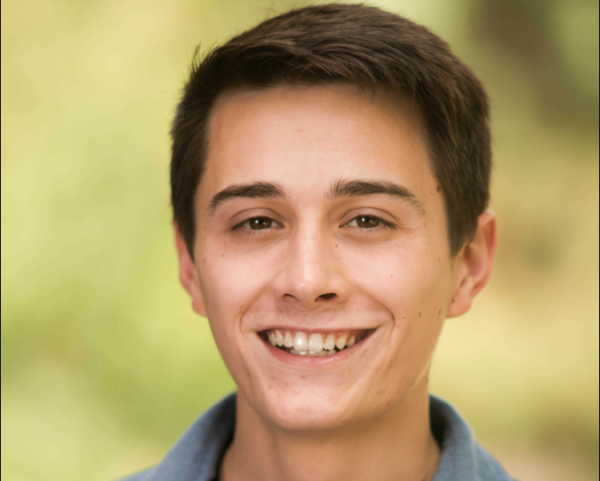Third LAS dean candidate: ‘Value of an LAS degree is on the rise’
Orlando Perez speaks in a public forum Monday afternoon in Hubbard Hall. Perez is a dean candidate for LAS.
Orlando Pérez, the third of four candidates for dean of the Fairmount College of Liberal Arts and Sciences, presented to Wichita State faculty and staff members as part of the dean search committee selection process Monday. If chosen, Pérez will replace current dean Ron Matson, who is retiring after 48 years at WSU.
Pérez, associate dean of the college of arts, humanities and social sciences at Millersville University in Pennsylvania, used his presentation to stress that if the college of LAS wants to thrive, it must have a “shared vision” with the Innovation Campus and other areas of WSU.
“When you look at the (WSU Foundation’s) website, and you look at the $200 million goal and look at all the areas, it’s hard to find LAS in there,” Pérez said.
“The key to LAS on the Innovation Campus is to think of ways we can work collaboratively.”
LAS must have “meaningful engagement,” Pérez said, with other areas of campus — particularly those in STEM — to create a “shared vision.” Administration must understand the challenges and goals of each individual college, he said.
“Administration once tried to engage me in perfunctory engagement, and I didn’t like it,” Pérez said. “I’m into stepping into the shoes of the people I’m trying to lead.”
It’s important for LAS to remember that science “is an integral part of liberal arts,” Pérez said.
“When you think about STEM, the ‘S’ is actually mired in the declining enrollment in liberal arts. We’re in the same boat together — and we either sink or float together.”
If selected as dean, Pérez said he would strive to be “transparent and accountable” and “willing to answer to what I say and what I do.”
He said his approach would be to start conversations early in his tenure with “chairs, department heads, faculty, students, and staff” about what direction to take the college in and what challenges the college faces.
Pérez said leadership is “how you inspire faculty and staff to work through the challenges and build opportunity.”
Deans don’t do much by themselves, Pérez said.
“The staff, faculty, and programs are what are moving things forward.”
Pérez said the key to excelling and motivating faculty is support by leadership and administration.
“If I’m not supported by the administration adequately, then why should I do extra things and be engaging if I’m not being treated right?”
After outlining his plan for the LAS college if chosen as dean, Pérez had time for questions from attendees.
He was asked about grant funding, which he said is an essential role of the dean’s office.
“It’s part of the expectation of supporting newcomers,” Pérez said.
Jeffrey Hershfield, chair of the philosophy department, questioned Pérez’s assumption that the value of an LAS degree is on the rise.
“We’ve been talking about this 40 years,” Hershfield said. “I don’t think it resonates with people. What I want in a dean is someone who can help (people to see that value).”
Pérez said the fastest-growing link to Silicon Valley work — “digital programming, software development” — is workers with degrees in philosophy.
“The skills in terms of logic and critical thinking are highly sought out,” Pérez said. To Pérez, an LAS degree’s value is rising. He thinks that others outside of LAS are starting to see that as well.
“The popular image (of an LAS degree) is that it’s useless,” Pérez said. “Before and after, you’re still working at a pizza joint.
“We have to stop being defensive about the value of what we do and what we provide our students.”

Andrew Linnabary was the 2018-2019 Digital Managing Editor of The Sunflower. He studied journalism and minored in English. Linnabary is from Wichita, Kansas.










